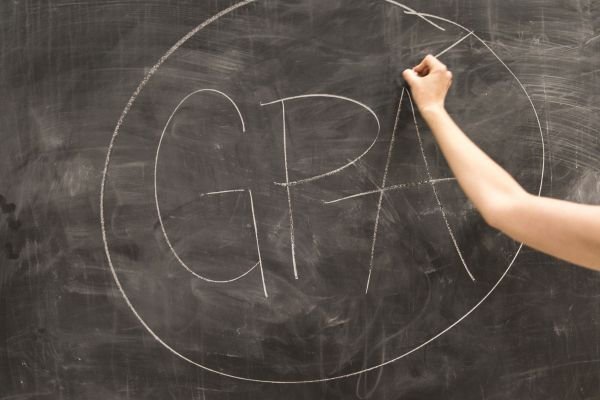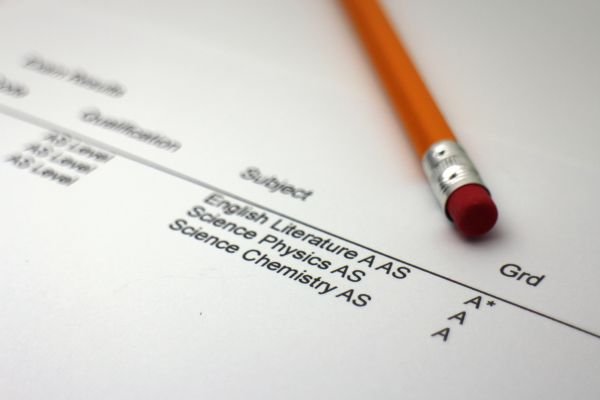In High school, a good GPA is crucial for academic progress. But while about to enter college, you might wonder, “Does GPA matter in college as the same as high school?”. Well, GPA does matter in college, but its importance can vary on individual situations and career goals. Even upon graduation from college, your GPA refuses to be left behind and may continue to impact your future endeavours. In this post, we will answer some common questions surrounding GPA, including its significance for students during college and beyond. Let’s explore does GPA matter in college and alternative ways to showcase your academic achievements.
Does GPA Matter in College?
Yes, GPA holds excellent significance in college. In college, grade points show your academic performance and are key to unlocking the doors to scholarships, academic honours programs, and dream job opportunities. You can picture a high GPA as a ‘trophy for merit’ representing your academic prowess and dedication. A good GPA is a doorway to open academic pathways, create a buzz of excitement around your achievements, and show the ability to impress employers.

Why Does GPA Matter in College?
Your GPA holds significance due to several reasons. For instance, you can only impress employers as a novice candidate with a high GPA. At the same time, a high GPA will fill the gap in personal experience in the job sector. A higher GPA facilitates many more things, including scholarship eligibility, major selection, etc.
Reflects Academic Performance:
GPA reflects your overall academic performance and serves as a measure of your success in college. It showcases your dedication, effort, and understanding of the coursework.
Scholarship Eligibility:
Many scholarships have GPA requirements; maintaining a certain GPA is often necessary to qualify for financial aid or specific academic scholarships. A low GPA may put your scholarship opportunities at risk.
See Also: Can You Go to College at Any Age
Major Selection:
Some majors or programs within colleges necessitates low GPA for admission. If your GPA falls below the required threshold, consider alternative majors that align with your academic performance.
Opportunity for Honors Programs:
A high GPA can lead to academic honours, such as inclusion in honours programs or being listed on the Dean’s List. These achievements can enhance your academic profile and provide additional scholarship opportunities, internships, and graduate school applications.
Internship and Job Prospects:
Many employers consider GPA as a factor when evaluating job candidates, especially for entry-level positions. A strong GPA can demonstrate your commitment to academic excellence and increase your chances of securing competitive internships and job opportunities.
Which GPA do most colleges look at?
The required GPA varies based on your college and aspirations. For instance, many colleges mandate a minimum GPA of 2.0. Falling below this threshold could result in academic probation, loss of financial aid, or even program dismissal. However, aiming for a significantly higher GPA can prove worthwhile.
GPAs exceeding 3.0 enhance your chances of securing scholarships and gaining admission to graduate school. While a perfect 4.0 is not always necessary, the closer you are to that mark, the more academic recognition you are likely to receive.

How To Raise Your GPA?
A higher college GPA positively impacts both during your academic journey and beyond. If you find that your GPA is lower than desired or if you aim to maintain a high GPA, consider the following tips to raise your GPA:
Don’t Waste The Freshman Year:
The earlier you set your sights on a higher GPA, the greater your chances of success. Don’t waste your freshman year. The first year presents a golden opportunity, with many classes that can significantly impact your average. As you progress through your college journey, your GPA gradually takes shape, and by senior year, it nears its final form. So, seize the moment; start from day one to aim high and steadily raise your GPA, unlocking the doors to a bright academic future.
See Also: Why Is College So Hard & How To Make It Easy!
Study Throughout the Semester:
Forget about those last-minute cram sessions that leave you feeling overwhelmed and frazzled. Instead, adopt a more innovative approach to studying, and start studying from the beginning of a semester for a shorter period every day. Make it a habit. Take some time each week to review your notes or quiz yourself. As you get closer to the test, increase your study sessions. By incorporating consistent and manageable study habits, you’ll be better prepared and more confident on exam day resulting in a better GPA.

Create Your Organizational System:
To stay organized and avoid chaos, develop a reliable organizational system. You can use a planner to record assignment deadlines and test dates. Create separate folders for each course’s notes and papers. Setting dedicated blocks of time for studying. Remaining organized will help you to stay on track, and remain focused, which will eventually reflect on your overall grades.
Attend Class Actively:
Make attending class a top priority in your college journey. Each time you skip, you risk missing out on valuable information. Confidently participate in academic discussions and take detailed notes to not skimp on anything important. Participate in all essential activities that may have an impact on your grades. Since grades are accounted cumulatively, a downgrade in any credit hour may have a negative effect on overall grade points.
Seek Assistance:
Don’t hesitate to look for professor’s help when needed. College can be overwhelming, but you don’t have to face it alone. Visit your faculty during office hours or take advantage of virtual office hours offered by online colleges. Join study groups or utilize tutoring services to gain extra support and understanding. With adequate peer support, it might be easier for you to achieve higher grades.
Does your GPA matter after college graduation?
The significance of GPA after college varies depending on one’s chosen career path. At the same time, some students may find a high GPA less important if they are not pursuing further education or entering into professions. However, GPA still holds value in specific contexts. For instance, good grades come in handy for securing initial job opportunities, especially when you lack experience. In highly competitive industries like engineering, technology, and finance, a high GPA becomes a prominent factor due to the many applicants. It serves to manage the candidate pool effectively.

When GPA No Longer Matters?
After graduation, there comes a point when the significance of GPA begins to fade into the background. As you progress into a professional career, gain experience; employers prioritize your work history, skills, and accomplishments over your college GPA. Once you’ve established a solid professional reputation, your past achievements and contributions in your professional career hold more weight than your academic performance. However, specific industries, such as creative arts or entrepreneurship, may value practical skills and real-world outcomes over GPA right after graduation. Additionally, if you’re considering a career change or further education, later on, your GPA from your previous academic pursuits becomes less relevant.
Are there alternative ways to showcase academic achievement besides GPA?
Yes, there are alternative ways to demonstrate academic achievement beyond GPA. While GPA is a commonly used metric, it is not the sole indicator of a student’s abilities or accomplishments. Here are a few alternative ways to showcase academic excellence:
Academic Projects and Research:
Highlighting significant projects, research papers, or independent studies you have completed can demonstrate your academic skills and dedication.
Internships and Work Experience:
Showcasing relevant internships or work experience can demonstrate your practical application of knowledge and skills in real-world settings.
Letters of Recommendation:
A perfect letter of recommendation from professors, mentors, or employers can provide valuable insights into your academic abilities, work ethic, and potential.

Extracurricular Activities and Leadership Roles:
Involvement in extracurricular activities, clubs, or leadership roles can showcase your ability to balance academics with other responsibilities and demonstrate your leadership, teamwork, and time management skills.
Portfolios and Creative Works:
If you are in a field that emphasizes creativity or practical skills, such as art, design, or writing, showcasing a portfolio or examples of your creative works can effectively demonstrate your abilities.
Final Words:
GPA plays a significant role in various aspects of academic and career success. But it is important to note that GPA is not the sole thing to achieve future success. It should be balanced with practical experience, skills, and personal growth. Only for those not pursuing further education or specific career paths, the importance of GPA may diminish over time as experience and track record become more valuable. However, we hope you have answers to your query about “Does GPA matter in college”. Ultimately, while GPA holds importance, it is just one aspect of a comprehensive educational journey that includes holistic development and the pursuit of one’s passions and goals.
